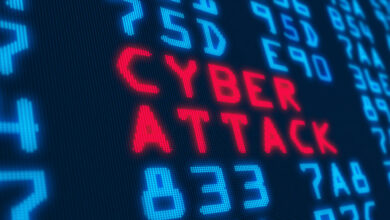Is It Too Late to Buy Zscaler Stock?

Zscaler has pulled back, but some investors may perceive it as too expensive.
Zscaler (ZS 0.73%) has emerged as one of the top cybersecurity companies. Although it is a leader in zero trust security (hence the name), it offers cybersecurity on several fronts.
However, it competes with CrowdStrike, Palo Alto Networks, Fortinet, and others, and investors may hesitate to buy the stock with its forward P/E ratio near 70. Given such conditions, did investors wait too long to buy this cybersecurity stock? Let’s take a closer look.
The state of Zscaler
As mentioned before, Zscaler has become one of the top cybersecurity companies by virtue of its role as the innovator in zero trust security.
This is important because the cloud and the advent of wireless mobile devices turned cybersecurity on its head. With that transition, the traditional firewall approach to security had become obsolete in many respects, necessitating a different strategy.
Zero trust security treats every user as a potential threat. It uses characteristics such as one’s rank in an organization, location, and device to determine access. Moreover, it grants limited degrees of access to mitigate damage when security breaches occur.
Additionally, customers have shown an increasing preference for buying most or all security products from one company. To this end, Zscaler offers products such as endpoint security and cloud firewalls that allow it to upsell customers beyond its zero trust offerings.
Furthermore, Fortune Business Insights forecasts the global cybersecurity market will grow at a compound annual rate of 14% through 2030. Such increases make it more likely that a rising tide will lift all boats in that industry.
Zscaler’s financial challenges
The problems with Zscaler stock show up in its financials and other metrics. For the first two quarters of fiscal 2024 (ended Jan. 31), Zscaler earned just over $1 billion in revenue, and the 38% increase from the same period in fiscal 2023 places it in a strong position.
Also, its net revenue retention in fiscal Q2 was 117%. While down from previous quarters, this still means the average long-term customer spent 17% more on Zscaler products than the prior year, which represents robust revenue growth.
The problem comes on the profitability side. Unlike most of its peers, Zscaler has never earned a profit. In the first six months of fiscal 2024, it lost almost $62 million, down from the $126 million loss in the same period in fiscal 2023.
The loss is likely a mixed bag for investors. Its $270 million in stock-based compensation expenses continues to make profitability an elusive goal. Nonetheless, stock-based compensation is a noncash expense. That allowed Zscaler to generate $326 million in positive free cash flow in the first half of fiscal 2024, limiting the negative impact of the loss.
That factor may explain why investors have largely overlooked the net losses. Even after pulling back by nearly 30%, the stock has risen more than 60% over the last year.
Furthermore, its valuation appears expensive but not outlandish. At a P/S ratio of around 14, it is pricier than Fortinet and Palo Alto but sells at a considerable discount to CrowdStrike. Nonetheless, since Zscaler is the only one of those four without a P/E ratio, many investors may feel more comfortable buying one of its competitors.
ZS PS Ratio data by YCharts
Is it too late to buy Zscaler stock?
Given Zscaler’s current condition, it is likely not too late to buy, but the bigger question is whether it is a buy relative to its peers. Admittedly, cybersecurity should remain a rapidly growing field for some time to come, and its leadership in zero trust security makes it likely that the company’s revenue and stock price will increase over time.
What is more uncertain is whether Zscaler can outperform its peers. With a higher sales multiple than most stocks other than CrowdStrike, investors may pass it over in favor of a lower-cost stock earning a profit. Such conditions make Zscaler a somewhat riskier choice, albeit one that should deliver returns for investors.
Will Healy has positions in CrowdStrike and Zscaler. The Motley Fool has positions in and recommends CrowdStrike, Fortinet, Palo Alto Networks, and Zscaler. The Motley Fool has a disclosure policy.



